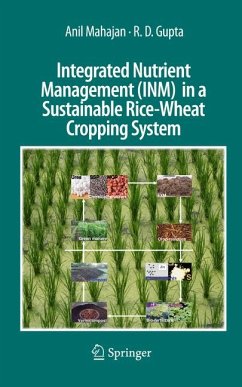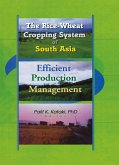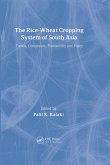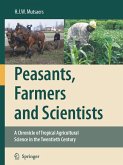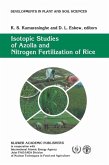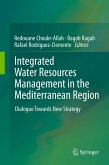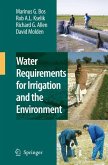India's rice and wheat crops are in crisis - a dangerous situation for a nation where 75 per cent of the population depends on agriculture for a living. Today's falling or static yields in these two key crops have been the result of the intensification of agriculture from the 1960s on. That so-called 'Green Revolution', which depended heavily on chemical fertilizers and pesticides, saw crop production keep pace with population growth until the end of the last millennium. Today, however, the sector is suffering from depleted soils and reduced ground water levels. Past excesses have even left the current generation of farmers with health hazards. The authors of this volume, experts in agriculture and agronomy in the subcontinent, say a new approach is needed. India's population will rise from today's 1.18 billion people to as many as 1.5 billion by 2020, with 25 per cent more mouths to feed. Not only that, but agriculture's pre-eminent place in the country's economy, where it is 18 per cent of total GDP and the biggest single export sector, make any problem in the industry one of national importance. Other nations in Asia, including Pakistan, Nepal, China and Bangladesh, have already recognized the problem of static yields and have developed the concept of the 'Integrated Nutrient Management' (INM) system. Its aim is to make agricultural cropping sustainable by maintaining or enhancing the soil quality while leaving room for increases in yields, and it advocates the balanced use of both organic and inorganic methodologies. Mahajan and Gupta, both highly experienced experts in the science of agriculture, and in Gupta's case a leading environmentalist, examine in detail India's cropping crisis as well as the possible remedies. They conclude that the INM System is an essential component of any solution. The book also delineates potential sources of organic plant nutrients and bio-fertilizers in India, and analyzes the rice-wheatcropping system and the role INM could play in sustaining crop productivity. The authors also provide insight into the balanced use of plant nutrients in increasing rice and wheat productivity and about the effective use of fertilizers and water management practices for rice and wheat crops. Constraints in the adoption of INM system and future research strategies are the other crucial topics which are covered in this comprehensive text.
Dieser Download kann aus rechtlichen Gründen nur mit Rechnungsadresse in A, B, BG, CY, CZ, D, DK, EW, E, FIN, F, GR, HR, H, IRL, I, LT, L, LR, M, NL, PL, P, R, S, SLO, SK ausgeliefert werden.

